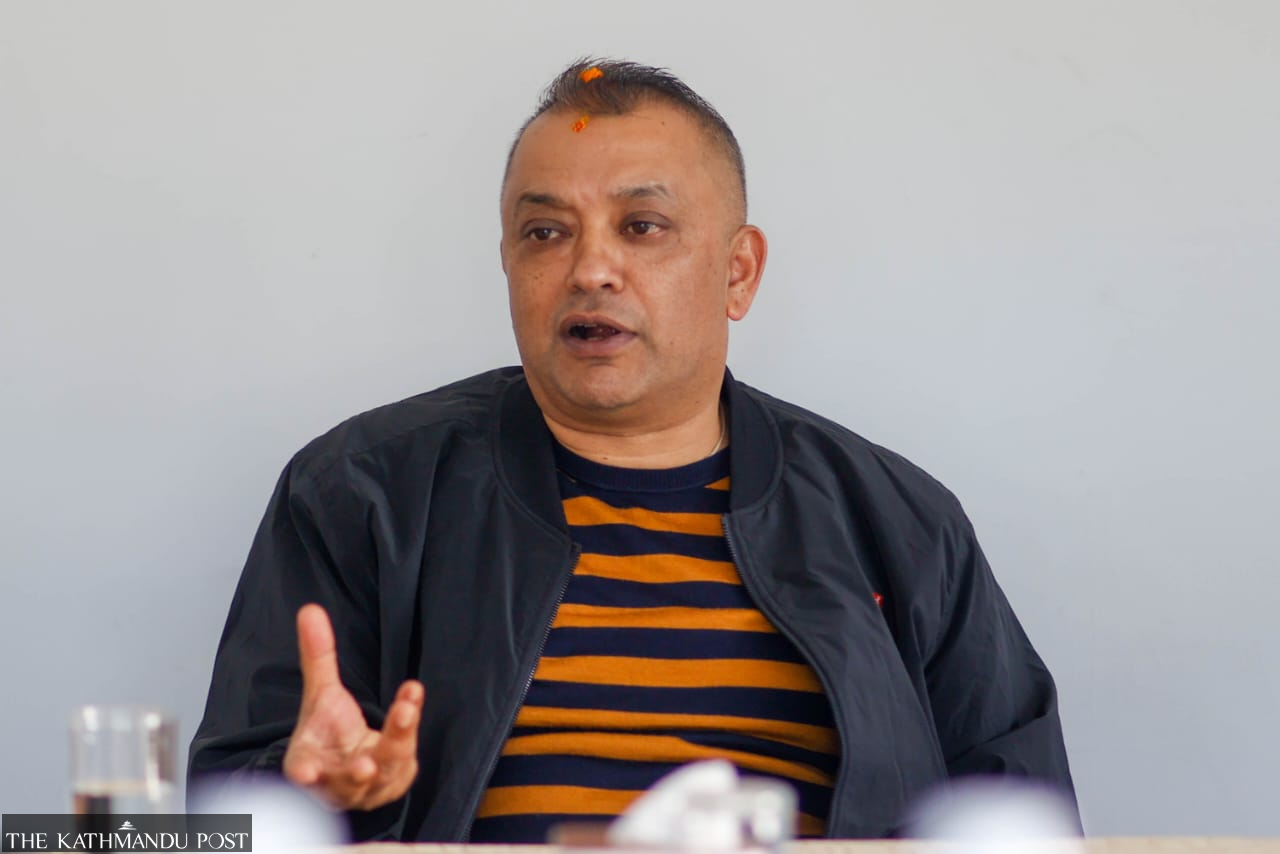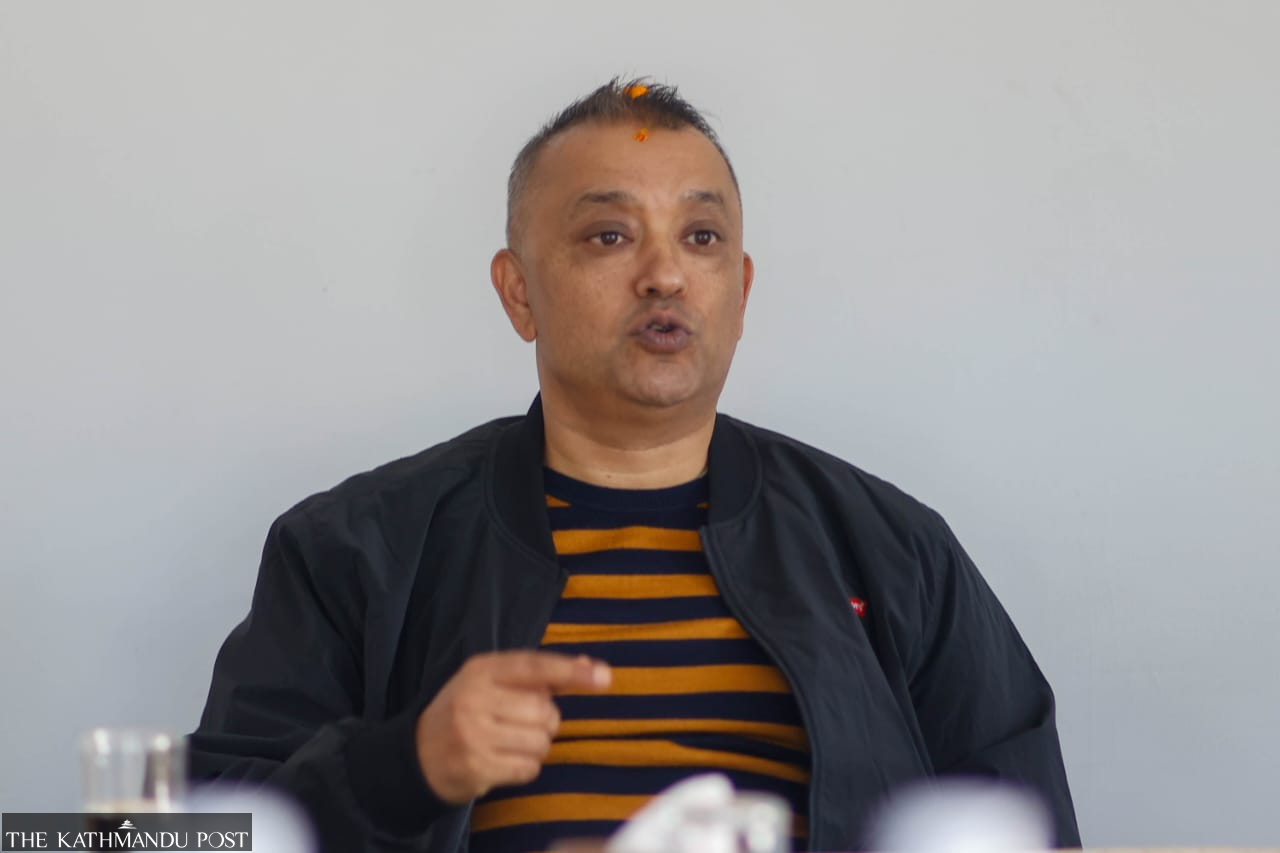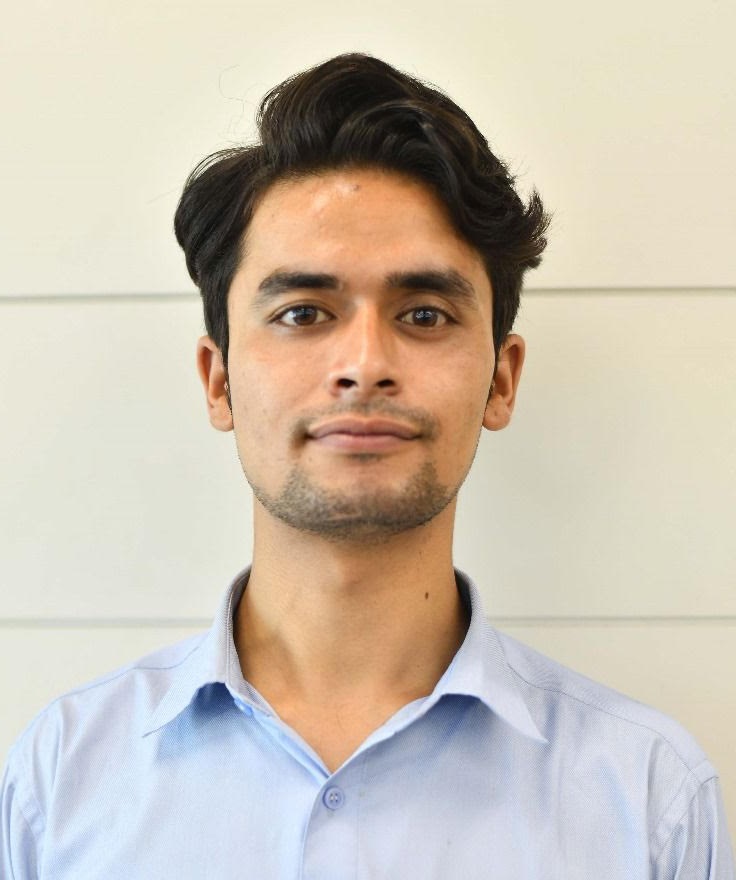Interviews
We might have to request people to contest elections on Nepali Congress ticket
The killing of 19 protesters on September 8 was the biggest suppression of democracy in the history of democratic Nepal.
Biken K Dawadi & Purushottam Poudel
In the aftermath of the Gen Z movement, the Nepali Congress seems to be the only mainstream party to have accepted, albeit partially, the movement’s spirit. However, the party has been marred by indecision as its central committee meeting has dragged on for over 23 days. The Post’s Purushottam Poudel and Biken K Dawadi sat down with the general secretary of the Congress, Gagan Thapa. They discussed the party’s general convention, the Gen Z movement, the erstwhile Oli government, the current interim government, and the way forward.
After the Gen Z movement, many hoped that the Nepali Congress would work to drastically reform. But that does not seem to be the case.
From the outside, the party might be seen as rife with problems. But that is not the case. All things boil down to the date of the party’s next convention. The stalemate in selecting a date has given rise to all the other problems in the party.
Why the convention now, not next year?
It is not as if we were not planning to hold a convention soon. As per the party’s statute, we must organise the convention by next year. The Gen Z movement of early September exposed the anger and frustration of the general public. The questions they posed, regarding corruption and good governance, apply to all of us leaders of the mainstream parties. The Congress has accepted some lapses from the old guard. For an extensive discussion, however, a convention is necessary.
We planned the convention within the next one and half months because it will take time for the Gen Z leaders, the interim government and the political parties to sync with each other. Holding a convention right now would not have been feasible. The party needs to be ready too. There is still infighting in the party, and some leaders are still adamant that the protests were not against us. Whereas the focus should be on the March elections.
The existence of political parties is central to a parliamentary system. By procrastinating on the elections and deviating from the change demanded by the people, leaders do not simply invite a loss to the party but to the larger national interest. The Gen Z movement demanded that the heads of the three mainstream parties—Sher Bahdur Deuba, KP Oli and Pushpa Kamal Dahal—be replaced. If the other two parties are not willing to bring about that change, at the very least, the Congress should take the initiative. What will people say in two months if we cannot change the party president?
You collected the signatures of around 54 percent of convention representatives demanding a convention. Is that an attempt to split the party?
No. If we have the support of a majority of convention representatives, why would we want to split and form another party? Perhaps we do not have a majority in the central committee, but we have strong support at the grassroots level, as shown by the signature campaign.
The old guard in the party still claims that we younger leaders are made by the media while they have a strong grasp on the party. They still look at us as outsiders. However, the convention representatives were chosen by them, and they are with us. There is no need to split the party. We have a majority on our side and we will bring about positive changes. We have given the old guard an ultimatum: The convention must be held by mid-January.
To change the track a bit, is the race to be the next Congress president also about being able to distribute election tickets?
It is an open secret that the party chiefs have been distributing tickets to their own people. But to say that I, or fellow general secretary of the party, Bishwa Prakash Sharma, is pushing for a change in party leadership to get a say in the ticket distribution is a baseless argument. As the general secretaries of the party, we still have a say in ticket distribution.
And there is another great question that we face: Who will try to get tickets from the Congress in the upcoming elections? In the current circumstances, we might have to request people to contest elections from the Nepali Congress.

You have laid a claim to the both party presidency and the prime ministerial candidate from the party. Doesn’t this kind of angling for both the posts set a bad precedent?
If you look at the manifesto I prepared while contesting the role of convention representative for the 12th general convention, I have always been in favour of having different individuals as the party president and the prime minister. My candidacy for either post is directed at reforms in the party. As long as a new generation of leaders, which includes me and Bishwa Prakash Sharma, get a chance to lead, I have no qualms about which one of us leads the party while the other leads the party in the parliament.
What outcomes do you expect from the convention?
First, the convention will bring a change in the top leadership of the Congress. In a way, we will be liberated from the stagnation of the old leadership. Second, heading to the elections without holding the convention will be a mistake. In the convention, when the party’s top leadership is changed, it will send a message to the voters: The current era of the Congress is over, and a new chapter has started.
Third, there has not been a single movement in the democratic history of Nepal where the Congress has not taken the lead. The Gen Z movement, however, seemed to be against the party. The Congress was associated with corruption and bad governance. Through the convention, we will get a new leadership which will ensure that the party is never again associated with those traits.
Fourth, we will introduce new policy measures through the convention to reform the party. The politicisation of public bodies and the politics of spoils-sharing must be stopped. People used to associate themselves with the Congress based on principles and ideologies. The party has transformed into an election machine, ready to form a coalition government with any other party, with one simple goal: to form a government. This practice has influenced the younger generation’s perspective of the party. Should we not, at the very least, try to change the public perception? We are proud to be a part of the Nepali Congress, and we want others to feel the same.
Why has the party’s central committee meeting spanned over 23 days?
The traditional practice in the Congress is that the party president presents some proposals in the meeting, which are supported by an overwhelming majority of the central committee. The current situation is different. First, the party president is not present in the meeting. He has left behind an acting president. Second, the president’s proposals are not clear. This means that multiple members are presenting proposals, and the proposals are not getting a majority support as easily. This new dynamic has prolonged the central committee meeting.
Separately, what is your take on the social media ban by the Oli government, a decision that partly sparked the Gen Z protests?
The recent ban on social media platforms was not the first of its kind proposed by an Oli-led government. In 2019, Oli presented the IT Bill at parliament, introducing stringent rules for social media users and mandating the registration of social media companies in Nepal. We protested against the bill in the House and on the streets. Amid widespread backlash over the ambiguous language aimed at curtailing freedom of speech and increasing surveillance, the bill was shelved.
The entire angle and approach of the bill was wrong. It seemed Oli was in a mood to silence his critics. But this happens only in an authoritarian regime, not a liberal democracy. Only authoritarian leaders undermine freedom of expression.
While Oli’s 2019 push to curtail the freedom of expression faltered, his underlying motive of monitoring social media platforms found traction after the Supreme Court delivered a verdict on August 16, mandating social media platforms register with the government. The Oli government stepped on this verdict to ban unregistered social media platforms from September 4.
In a democracy, any government action is analysed under the lens of legality and legitimacy. While the court’s verdict might have established the legality of the ban, its legitimacy was questionable. The legitimacy, established through citizens’ trust, was overlooked.
How do you analyse the Nepali Army’s intention with respect to the two days of the protests?
The interim government has formed an inquiry panel to investigate the events of September 8 and 9. There is some space to question the intention of the army, but the situation was such that they had to make an emergency decision. I will wait until the report of the investigation is released.

How do you see the contrast in the narratives of former PM Oli with those of the chiefs of security agencies when it came to anticipating the September 8 protest?
As far as I understand, the security forces anticipated the scale of the protests and tried to communicate it to former PM Oli and his team. However, Oli turned a deaf ear to the concerns raised by the agencies. And, we, the political leaders, are responsible for that too.
The leaders have interfered with the security agencies over the past two decades, which has killed their professionalism. State agencies suffer from our overreach. The relationship between leaders and the security agencies has become more private and informal.
What are you doing to change the views of other leaders of the Congress who still cannot internalise the spirit of the Gen Z movement?
From our side, we are doing two things simultaneously. First, reaching out to such leaders on a personal level. We are meeting such leaders and trying to make them understand the spirit of the movement. And this has resulted in some leaders changing their position. Second, we are reaching out to professionals and intellectuals in the circles of such leaders. We are trying to convince such individuals to convince those leaders.
What are your views on the formation of the interim government?
Immediately after the incident, we met with President Ramchandra Paudel and proposed a meeting of the HoR, at least for an hour, in order to untie the knots of the constitution to legitimise the appointment of former Chief Justice Sushila Karki as the prime minister. The Gen Z representatives, however, did not accept the proposal. In a literal way, the interim government is unconstitutional. But the doctrine of necessity sometimes lands us in such a situation. In this regard, too, holding timely elections is important to bring the derailed process back on track. We also have a stake in the interim government. We support it.
What should be the approach of the interim government on the March 5 elections?
There is no alternative to an election. It is great that the interim government has understood this. The NC is also 100 percent committed to the elections. We also hope that the UML will gradually understand this and contest the elections. The interim government must expedite the process to forge a political consensus on the elections.
It is not just the security agencies that must take responsibility to create a secure environment for the elections. We also need to take that responsibility as a civil society. We will reach a stalemate if we lament that the security is not good enough and the security agencies point fingers at the government and the people.
Both the NC and UML must accept that the prison breaks took place while we were in power. But that does not mean that we are to be blamed solely for the incidents.
Has the Gen Z movement set a wrong precedent for regime change via protests?
No. The incident of September 8 was the biggest suppression of democracy in the history of democratic Nepal. The killing of 19 individuals in one day by the state’s security agencies posed a big moral question before the head of government. If I were the prime minister during that incident, I would have resigned immediately.
I see the events of September 9 in two parts. First, the widespread frustration and ire were a reaction to the state killings. It was unfortunate that this reaction was accompanied by violence. However, the ones behind the violence seem to be infiltrators in the protest. Even political parties are behind such violence. Even after the PM’s resignation, the arson had not stopped. It is wrong to point at those events to criminalise the protesters. But it is also wrong to validate the criminal activities by glorifying them.
Even if the elections are held on March 5, a question remains: What after that?
Let’s think about the situation. The elections are held on March 5. Say, the UML also decides to contest the elections, like the NC and the other communists. A new parliament is formed. So what? What would this parliament have to do? I think the way forward will be to forge a national consensus via the process of dialogue. We need to reach an agreement to legitimise the change demanded by Gen Z.
How do we do this?
The political parties were in a similar situation after the events of 2005-06. The civil society had urged the political parties to bring about positive changes. The changes that we brought about–inclusion, federalism and all other progressive changes—were not simply through the constitution. Before the royal coup, parties had political rights but no group rights or social rights. We realised that just using the Westminster form of political system was not enough. So the reinstated parliament, on its first meeting on May 18, 2006, made a commitment. We created a charter based on that commitment. Based on that charter, the progressive changes took place in our political system.
We need a similar charter now. What are the reforms that the parliament must make after the elections? If the agenda of anti-corruption is to be taken seriously, we must now envision the changes in our anti-graft body, the Commission for the Investigation of Abuse of Authority. Nepal’s constitution is the only one in our region which has a basis for the creation of such a body. It was our fault that such a body was politicised. Now we need broader consensus on what can be done to depoliticise the body. If it is to be formed by the constitutional council, it will always be a victim of politics.
We need tangible change. The new parliament must make constitutional amendments to reform the CIAA. And the charter that envisions that change must be created now. People are watching. This is the one opportunity to bring about a significant change. We must not miss it.
If this opportunity is allowed to pass, people will ask: What changes did the Gen Z movement bring about? And we might have to answer: It set Singha Durbar ablaze.




 8.22°C Kathmandu
8.22°C Kathmandu






.jpg&w=200&height=120)






